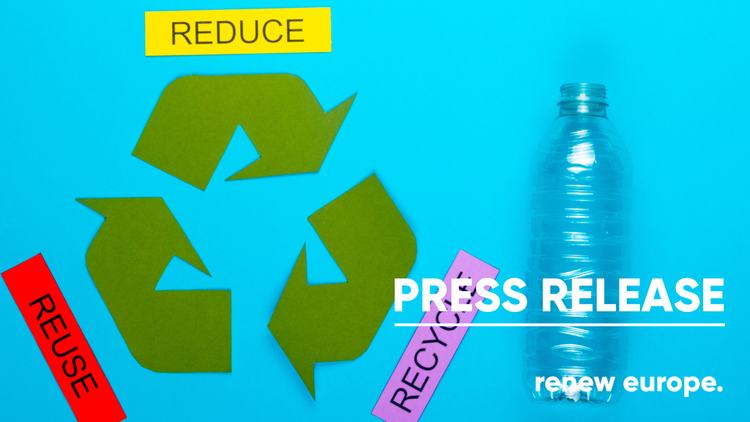
Packaging protects products, makes them suitable for transport and safe for use, and is therefore necessary and essential.
But packaging also remains an increasing source of waste, as packaging production continues to use large amounts of raw material. And while the level of reuse, collection and recycling remains low, we are simultaneously faced with an ever-increasing amount of packaging. If no new action is taken, every European citizen will see his personal waste mountain on packaging grow from 177 kg per year to 209 kg by 2030.
With the revision of The Packaging and Packaging Waste Regulation, Renew rapporteur Frédérique Ries has set new standards on how to deal sustainably with packaging in the near future, regardless of the materials used. Ambitious and specific targets - from smart packaging design and environmental sustainability requirements for the entire chain, to an effective reduction of unnecessary packaging and incentives for reuse, separate collection and quality recycling - will lift the barriers on the road to an enduring circular economy of packaging. Moreover, by converting more waste into secondary materials, we also strengthen our autonomy over strategic resources.
Renew Europe has also taken the opportunity to address the adverse consequences of some packaging materials on people’s and nature’s health. Therefore, the liberal group welcomes the support it received from other political groups in the EP for its proposal to ban PFAS and Bisphenol A for contact sensitive food packaging.
Renew Europe rapporteur MEP Frédérique Ries (MR, Belgium) explains :
“We sent out a strong message this morning in favour of an ambitious overhaul of the European packaging and packaging waste market. The aim is to make the sector environmentally greener by reducing our ever-increasing consumption of packaging. Moreover, there can be no effective recycling or reuse policies without safe, high quality packaging, which is why the ban on PFAS chemicals and intentionally added Bisphenol A is a major victory for the health of European consumers. The winning combination for Europe's circular economy is to combine our prevention, reuse and recycling policies, and to turn away from single use habits! It was also essential that environmental ambitions meet industrial reality. This has now been achieved, with a vote that promotes innovation, respects the principle of material neutrality and provides an exemption for companies with fewer than 10 employees.”